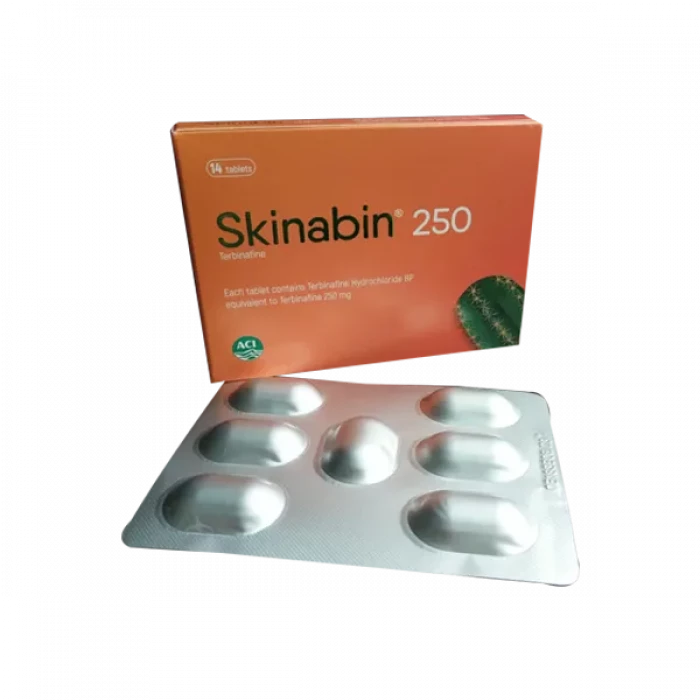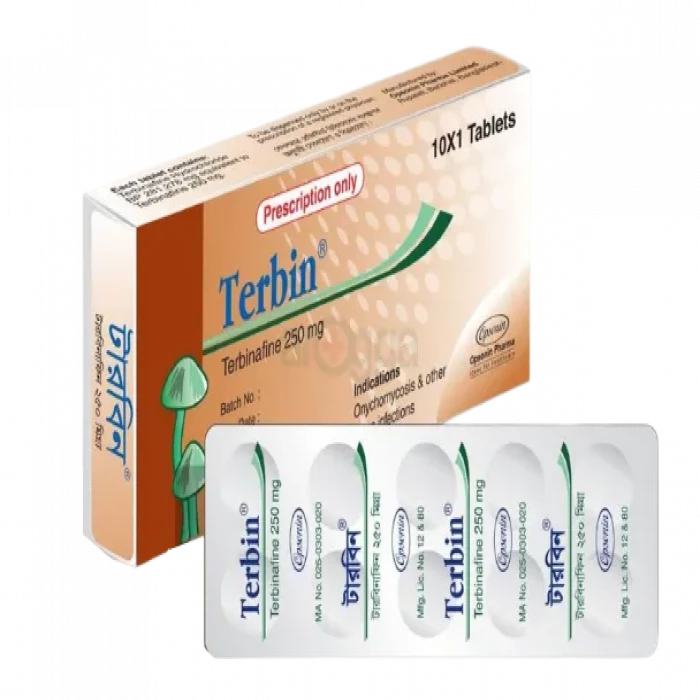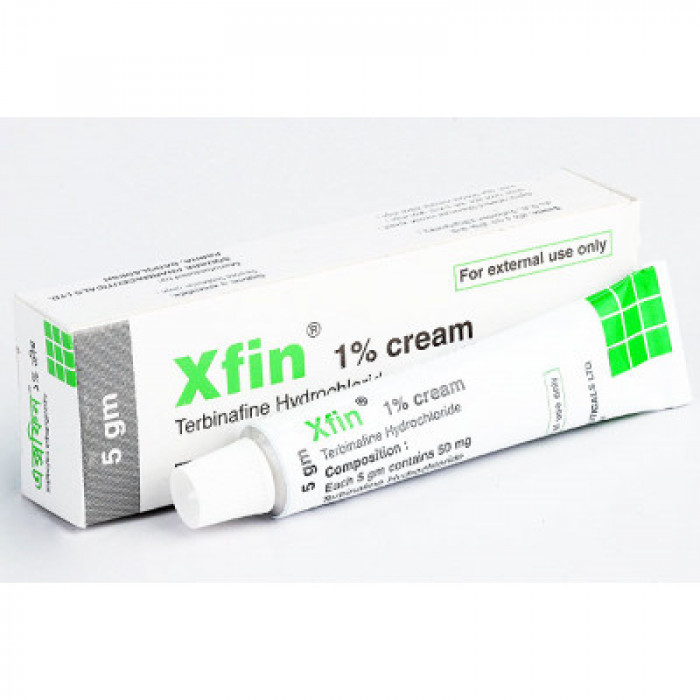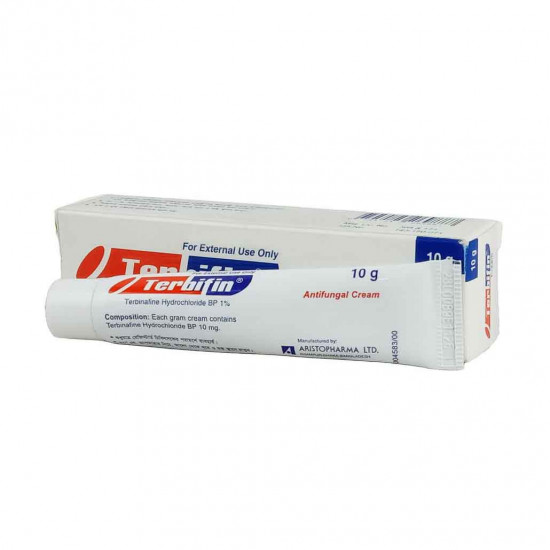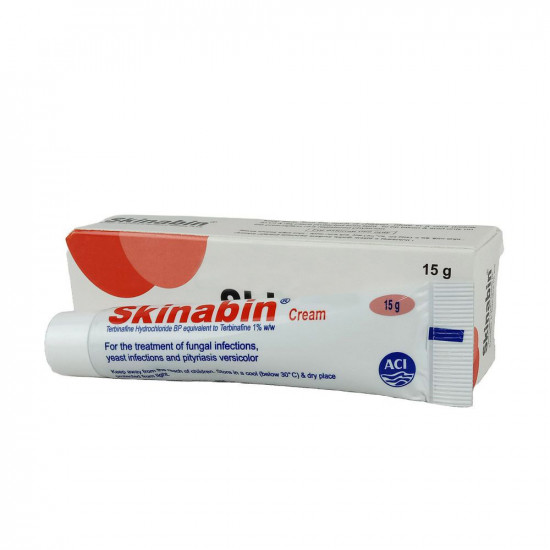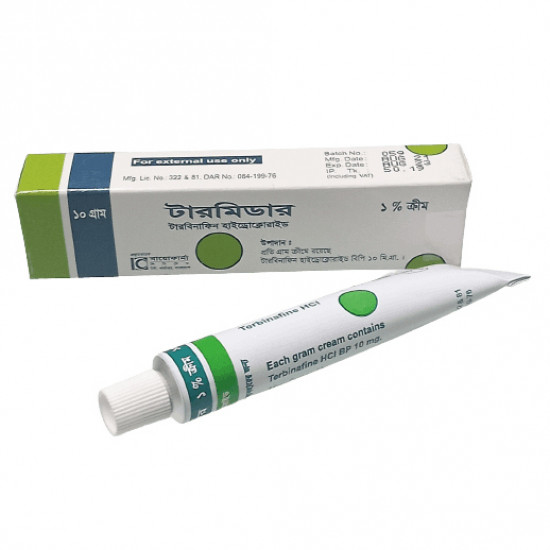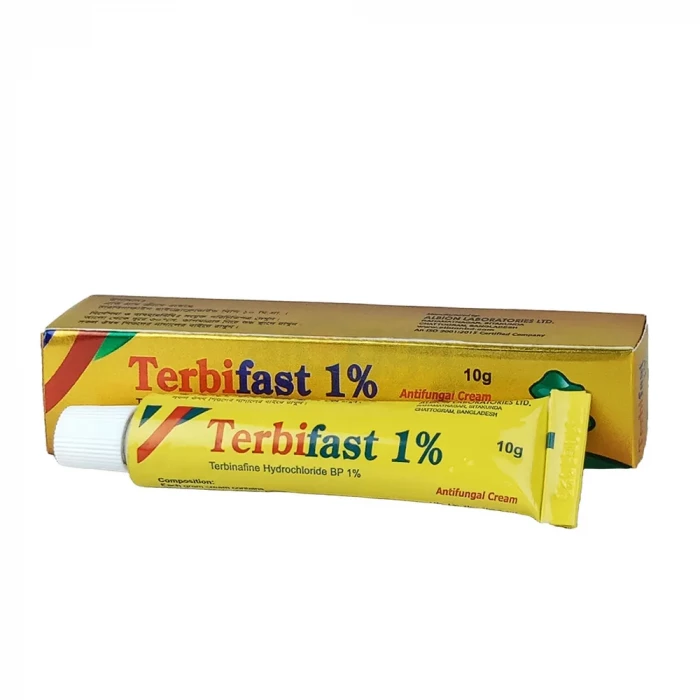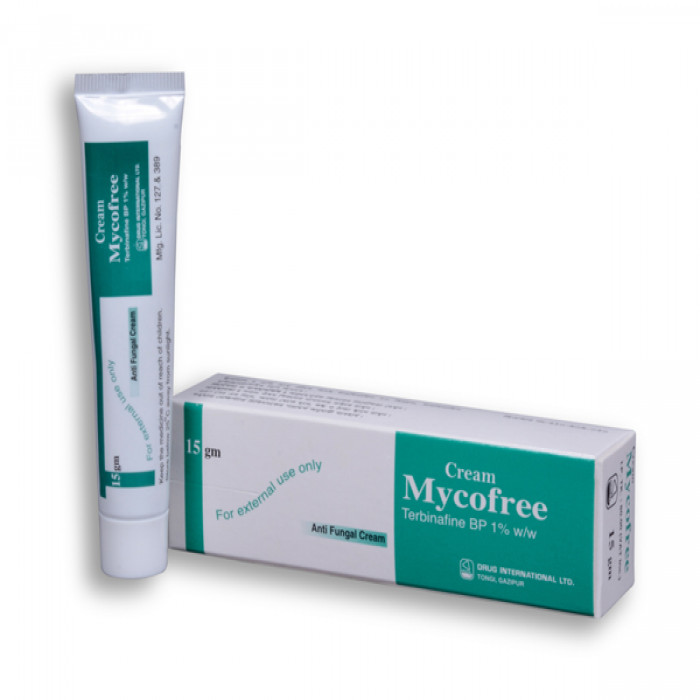
✔ 100% Authentic Product
👁️ Currently Viewing 4082
Mycofree 1% Cream is an antifungal medicine that contains Terbinafine as its active ingredient. It prevents the spread of fungal infection in various body parts like feet, nails, scalp, genitals, buttocks, etc.
Discount
Price: ৳ 95
MRP:
৳
100
5%
Off

100% Genuine Products, Guaranteed

Safe & Secure Payments, Always

Fast, Secure & Efficient Delivery

Proper Packaging
 Cash on Delivery - All over Bangladesh
Cash on Delivery - All over Bangladesh Regular Delivery - 12-24 Hours, Dhaka City* Charge Tk.39-59
Regular Delivery - 12-24 Hours, Dhaka City* Charge Tk.39-59 Regular Delivery - 24-48 Hours, Other Cities* Charge Tk.99-110
Regular Delivery - 24-48 Hours, Other Cities* Charge Tk.99-110
 ফ্রি ডেলিভারিঃ - ৯৯৯ টাকা+ অর্ডারে, ঢাকা
শহরে
ফ্রি ডেলিভারিঃ - ৯৯৯ টাকা+ অর্ডারে, ঢাকা
শহরে ফ্রি ডেলিভারিঃ - ২৯৯৯ টাকা+ অর্ডারে, ঢাকার
বাহিরে
ফ্রি ডেলিভারিঃ - ২৯৯৯ টাকা+ অর্ডারে, ঢাকার
বাহিরে
100% Genuine Products, Guaranteed
Safe & Secure Payments, Always
Fast, Secure & Efficient Delivery
Proper Packaging
 Cash on Delivery - All over Bangladesh
Cash on Delivery - All over Bangladesh Regular Delivery - 12-24 Hours, Dhaka City* Charge Tk.39-59
Regular Delivery - 12-24 Hours, Dhaka City* Charge Tk.39-59 Regular Delivery - 24-48 Hours, Other Cities* Charge Tk.99-110
Regular Delivery - 24-48 Hours, Other Cities* Charge Tk.99-110 ফ্রি ডেলিভারিঃ - ৯৯৯ টাকা+ অর্ডারে, ঢাকা
শহরে
ফ্রি ডেলিভারিঃ - ৯৯৯ টাকা+ অর্ডারে, ঢাকা
শহরে ফ্রি ডেলিভারিঃ - ২৯৯৯ টাকা+ অর্ডারে, ঢাকার
বাহিরে
ফ্রি ডেলিভারিঃ - ২৯৯৯ টাকা+ অর্ডারে, ঢাকার
বাহিরে
✅ Description:
Terbinafine, which is the active ingredient in Terbinafine-based medications such as TERBINAFINE, belongs to a class of drugs known as antifungals. Terbinafine is specifically used to treat fungal infections of the toenails and fingernails, a condition known as onychomycosis. On the other hand, oral granules of Mycofree 1% Cream are used to treat tinea capitis, a fungal infection of the scalp commonly referred to as scalp ringworm.
- Fungal nail infections (onychomycosis) often cause the nails to become thickened, discolored, and more prone to breakage. Tinea capitis, characterized by bald, itchy, and scaly patches in a ring-like shape, is a contagious fungal infection affecting the scalp.
- Terbinafine, the active component in Mycofree 1% Cream, works by damaging the cell membranes of the fungi. These membranes are vital for the survival of the fungal cells as they prevent the entry of unwanted substances into the cells and also maintain the integrity of the cell contents. By disrupting these membranes, Terbinafine effectively kills the fungi and clears the fungal infection.
- It is crucial to take Mycofree 1% Cream as prescribed by your doctor. The frequency and duration of treatment will depend on your specific medical condition. While taking Mycofree 1% Cream, some people may experience common side effects such as diarrhea, stomach pain, headache, and changes in taste or loss of taste. Most of these side effects are generally not severe and tend to resolve over time. However, if these side effects persist or worsen, it is advisable to consult your doctor.
- If you are allergic to Terbinafine, it is important to avoid taking Terbinafine. For pregnant or nursing mothers, it is recommended to consult a doctor before using Mycofree 1% Cream to assess its safety and potential risks. When using Mycofree 1% Cream, it is advisable to avoid excessive sun exposure as it may increase sensitivity to sunlight. Wearing protective clothing and using sunscreen can help protect the skin from sunburn.
- Lastly, if you experience symptoms of depression such as feelings of worthlessness or sadness, loss of interest or energy, mood changes, restlessness, or changes in sleep patterns, it is important to inform your doctor immediately.
Safety Advices

Alcohol
UNSAFE
There is no known interaction between alcohol and Mycofree 1% Cream. However, it is essential to consult your physician if you have a habit of regular drinking.

Pregnancy
UNSAFE
Mycofree 1% Cream is not recommended for use in pregnant women unless recommended by your physician. Therefore, consult your doctor before using it.

Breastfeeding
UNSAFE
Mycofree 1% Cream is not recommended for use in breastfeeding women unless recommended by your physician. Therefore, consult your doctor before using it.

Driving
CAUTION
Mycofree 1% Cream can make you feel dizzy. Thus, avoid driving if you do not feel well or are unable to be alert.

Kidney
No interaction found/established

Liver
No interaction found/established
✔️ Uses of Mycofree 1% Cream
- Treats Fungal Skin Infections
✔️ How does Mycofree 1% Cream work?
Mycofree 1% Cream works by stopping the production of a chemical known as ergosterol, which is responsible for forming the fungal cell membrane (the protective covering of the fungi). Thus, it kills the fungi and stops the spread of infections.
✔️ Side Effects of Mycofree 1% Cream
- Skin itching
- Skin peeling
- Change in skin color
- Skin redness at the site of application
- Dry skin
- Burning sensation at the application site
✔️ Quick Suggestions:
- Terbinafine helps treat fungal infections of the skin and nails.
- Do not skip any doses and finish the full course of treatment even if you feel better.
- Treatment may be needed for 2 to 6 weeks for skin infections and 6 weeks to 6 months for nail infections.
- It can make your skin more sensitive to the sun. Use broad-spectrum sunscreen and protective clothing when outdoors.
- Your doctor may monitor your liver function regularly during treatment. Inform your doctor if you notice yellowing of eyes or skin, dark urine, or stomach pain.
- Do not use Mycofree 1% Cream if you are allergic to terbinafine.
- It is not suitable for use in children aged below 18 years.
- Inform your doctor if you are pregnant, planning to conceive or breastfeeding.
✔️ Indication
Mycofree 1% Cream is an antifungal medication used to treat various fungal infections. It is effective against conditions such as athlete's foot, jock itch, pityriasis versicolor, and ringworm. Terbinafine, the active ingredient in Mycofree 1% Cream, works by inhibiting the growth of fungi.
When used as a cream or ointment, Mycofree 1% Cream not only acts as an antifungal agent but also provides relief from symptoms such as itching, burning, cracking, and scaling associated with fungal infections. It is important to apply the cream or ointment to dry and clean skin to ensure optimal absorption and effectiveness.
✔️ Pharmacology
Terbinafine, an allylamine antifungal medication, works by inhibiting the biosynthesis of ergosterol, a crucial component of the fungal cell membrane. It achieves this by blocking the activity of an enzyme called squalene epoxidase. As a result, the fungal cell membrane becomes more permeable, leading to increased leakage of cellular contents and ultimately causing fungal cell death. It is important to note that the mechanism of action of terbinafine is related to the accumulation of high concentrations of squalene rather than a deficiency of ergosterol itself.
The fungicidal (capable of killing fungi) or fungistatic (capable of inhibiting fungal growth) activity of terbinafine depends on the concentration of the drug and the specific fungal species being targeted. In vitro studies, which are conducted in laboratory settings, have shown that terbinafine hydrochloride is active against various fungal strains, including Trichophyton mentagrophytes and Trichophyton rubrum.
✔️ Dosage & Administration of Mycofree 1% Cream
Terbinafine Cream:
- Terbinafine cream should be applied once or twice daily.
- Cleanse and dry the affected areas thoroughly before applying the terbinafine cream.
- Apply the cream in a thin layer to the affected skin and the surrounding area and gently rub it in.
- In the case of intertriginous contaminations (submammary, interdigital, intergluteal, inguinal), a dressing strip may be used to secure the application, especially at night.
The following are the likely treatment durations:
- Tinea corporis and cruris: 1–2 weeks
- 1 week for tinea pedis
- 2 weeks for cutaneous candidiasis
- 2 weeks for pityriasis Versicolor
- The clinical side effects are usually relieved within a few days. Unpredictable use or premature discontinuation of treatment increases the risk of recurrence.
- If there are no signs of progress after two weeks, the decision should be confirmed.
✔️ Interaction
Mycofree 1% Cream, which contains the active ingredient terbinafine, can potentially interact with several drugs, foods, and medical conditions. Here are some known drug interactions, food interactions, and considerations for specific medical conditions:
Drug-Drug Interactions:
- Stomach ulcers medication (cimetidine): Cimetidine may increase the levels of terbinafine in the body, increasing the risk of side effects. Close monitoring is recommended.
- Antibiotics (rifampicin): Rifampicin may decrease the levels of terbinafine in the body, reducing its effectiveness. Alternative antifungal treatment may be considered.
- Antifungal medication (fluconazole): Fluconazole may increase the levels of terbinafine, potentially increasing the risk of side effects. Dose adjustment may be necessary.
- Blood pressure medication (metoprolol): Terbinafine may increase the levels of metoprolol, potentially leading to increased heart rate and blood pressure. Close monitoring is advised.
- Antidepressants (duloxetine, desipramine): Terbinafine may increase the levels of these antidepressants, possibly leading to an increased risk of side effects. Dose adjustment may be needed.
- Opioid painkillers (codeine, tramadol): Terbinafine may increase the levels of these painkillers, potentially leading to increased sedation and respiratory depression. Caution is advised.
- Blood thinners (warfarin): Terbinafine may increase the effects of warfarin, leading to an increased risk of bleeding. Close monitoring of blood clotting parameters is recommended.
- Heart-related medication (amiodarone): Terbinafine may increase the levels of amiodarone, potentially leading to an increased risk of side effects. Monitoring is advised.
- Immunosuppressant (ciclosporin): Terbinafine may increase the levels of ciclosporin, potentially leading to an increased risk of side effects. Close monitoring is necessary.
Drug-Food Interaction:
- Caffeine-containing foods (chocolate, cocoa beans, tea, coffee, cola, energy drinks): Terbinafine may interact with caffeine, potentially increasing the adverse effects of caffeine. It is advisable to avoid or limit the consumption of caffeine-containing foods or beverages.
Drug-Disease Interaction:
- Lupus (autoimmune disease): If you have lupus, inform your doctor before taking Stayhappi Terbinafine 250 Tablet 7's, as it may require special consideration or monitoring.
- The weakened immune system, kidney, or liver problems: If you have a weakened immune system or kidney or liver problems, it is important to inform your doctor before taking terbinafine, as dose adjustment or closer monitoring may be necessary.
✔️ Contraindications
People who are easily affected by terbinafine should not take tablets or creams containing terbinafine.
✔️ Pregnancy & Lactation
Terbinafine therapy is not recommended for nursing mothers.
Animal ripeness and fetal poisoning quality suggest no negative effects. Terbinafine is not clinically used in pregnant women; therefore, unless potential benefits outweigh potential risks, terbinafine should not be managed. Because terbinafine is excreted in breast milk, breastfeeding mothers shouldn't receive terbinafine treatment.
✔️ Precautions & Warnings
If you are allergic to terbinafine, it is important to avoid taking Mycofree 1% Cream or any other terbinafine-containing medication. Allergic reactions to terbinafine can vary in severity and may include symptoms such as rash, itching, swelling, dizziness, and difficulty breathing. If you experience any signs of an allergic reaction, seek immediate medical attention.
For pregnant or nursing mothers, it is advised to consult a doctor before using Mycofree 1% Cream. The use of terbinafine during pregnancy or while breastfeeding should be carefully evaluated by a healthcare professional to assess potential risks and benefits.
It is recommended to avoid or limit sun exposure while using Mycofree 1% Cream, as terbinafine can make the skin more sensitive to sunlight. Increased sun sensitivity may result in a higher risk of sunburn and skin damage. To protect your skin, it is advisable to wear protective clothing, such as hats and long sleeves, and use sunscreen with a high sun protection factor (SPF) while going out in the sun.
If you have lupus (an autoimmune disease), a weakened immune system, or kidney or liver problems, it is important to inform your doctor before taking Mycofree 1% Cream. These conditions may require special considerations or adjustments in the dosage or monitoring during treatment.
If you experience depressive symptoms such as feeling worthless or sad, loss of interest or energy in daily activities, mood changes, restlessness, or changes in sleep patterns while taking Mycofree 1% Cream, it is important to inform your doctor immediately. These symptoms may require further evaluation and appropriate management.
✔️ Storage Conditions
- Mycofree 1% Cream should be stored at room temperature in a clean and dry place, protected from moisture, sunlight, and heat.
- Keep the medicine away from children and pets.
- Do not use expired or damaged medicines.
- Discard unused medicine properly. Do not flush it in the toilet or throw it into the drain.
⚠️Disclaimer:
At ePharma, we’re committed to providing accurate and accessible health information. However, all content is intended for informational purposes only and should not replace medical advice from a qualified physician. Please consult your healthcare provider for personalized guidance. We aim to support, not substitute, the doctor-patient relationship.




